Red flags: Victims’ families reveal the first signs something wasn’t right
Bianca Unwin noticed something odd about her sister Katie’s new boyfriend almost immediately — but no one knew it would end in tragedy.
When 24-year-old Katie Haley met Shane Robertson, she seemed the happiest she had been in a long time.
Her sister, Bianca Unwin, didn’t think he was her usual type, but she was happy and that’s what mattered, so Robertson was welcomed into their family with open arms.
Over time, he became increasingly jealous, possessive even, but nothing rang any alarm bells for Ms Haley or her family.
“At the time it just seemed like regular relationship problems in this day and age of social media,” says Ms Unwin.
“Katie was required to call him as she walked into work and the moment she finished. Shane would also come into our work and observe her behaviour with male colleagues. He tried to claim she was cheating.
“We thought it was weird but nothing to be concerned about.
“I suppose none of this is really acceptable behaviour, but we never expected that someone who was supposed to love her was engaging in such possessive and sinister behaviour with the intention to hurt her.”
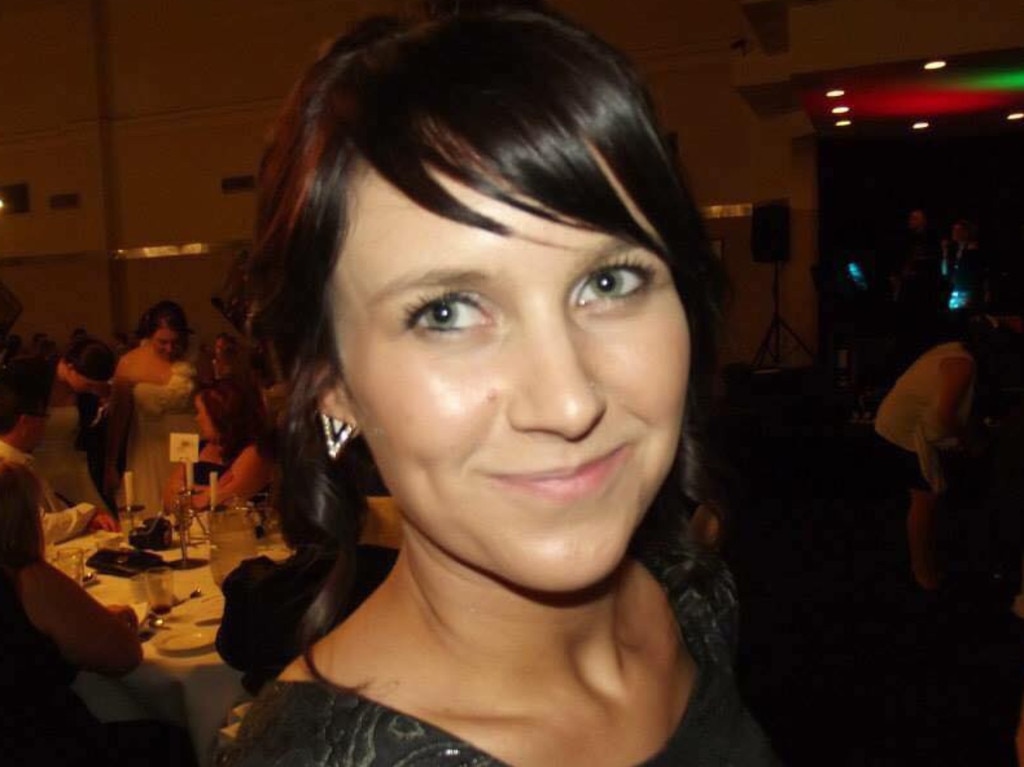
Four years later, Ms Haley was dead. Murdered by a man who was supposed to love her, the father of her daughter.
“Katie was cowering on her son’s bed when he struck her five times to the head and face with a dumbbell in a frenzied and brutal attack,” says Ms Unwin.
“It was premeditated as he left the room to go grab the weapon and proceeded to carry out the attack on Katie who was defenceless and vulnerable.”
Ms Unwin says looking back, there were signs things weren’t right, but no one perceived these behaviours to be indicative of potential violence.
“In hindsight of course there were signs, but sometimes those signs aren’t visible until it’s too late.
“A lot of his possessive and obsessive behaviour was acknowledged and addressed by both Katie and our family, but this type of behaviour is not promoted as signs of domestic violence.
“She always mentioned that she had it under control and that he was just being immature.
“We never feared for her life, if we did we would never, ever, have allowed her to leave our house that day.”
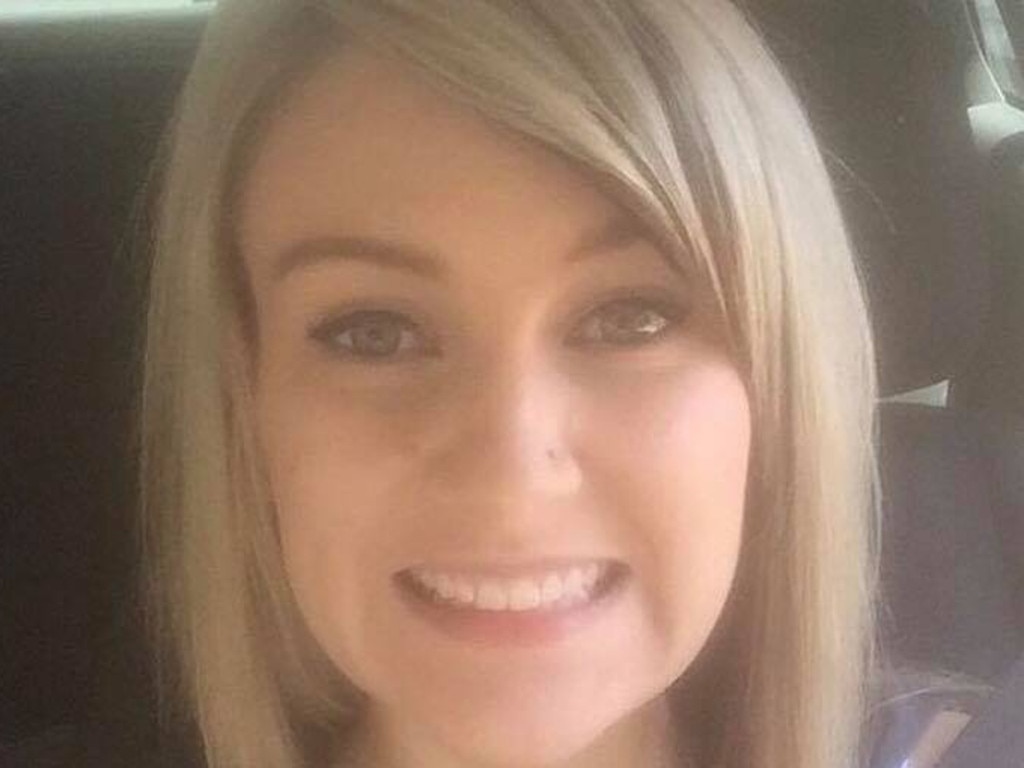
Devastatingly, this is a familiar story.
Every week, one woman is murdered by a current or former partner. For many of these men, this fatal act of violence is their first serious physical encounter with their spouse.
But that doesn’t mean there weren’t clues, hidden within their behaviour to indicate a pattern of abuse, and a predisposition for violence.
According to Shannan Thomas, founder of The Red Flags DV, identifying those early signs is crucial in fighting the battle against domestic violence, and possibly preventing abusers from attacking — or murdering — their partners.
“People often assume physical violence is the only early sign to worry about, but this isn’t true,” says Ms Thomas.
“Most abusive relationships start off with verbal abuse, emotional abuse and/or financial abuse, well before physical abuse is introduced.”
The Red Flags DV Campaign aims to educate people about the early warning signs of domestic violence, to raise public awareness about domestic violence and to decrease public acceptance of abuse.
“The campaign’s objective is to identify the early red flags of abuse to prevent the problem of violence, before it occurs or escalates,” says Ms Thomas.
“The early indicators of control and abuse in relationships follow a common pattern of behaviours and actions — if we are educated about them, we can call them out earlier and avoid sustaining a relationship that deteriorates as abuse escalates.”
Early ‘red flags’ include:
• Love-bombing
• Sharp personality changes
• Negativity towards family and friends, leading to isolation
• Extreme jealousy and accusations
• Blame-shifting
• Lying
• Encouraging co-dependence
• Behaving differently in public
• Controlling finances
• Monitoring social media
Many women experiencing many of these types of behaviours simply don’t recognise them as abuse.
If you do notice any of these red flags in your partner’s behaviour, but aren’t sure if they’re anything to worry about, Ms Thomas recommends applying the ‘No Test’.
“Say no to a request or demand and see how your partner responds in the early stages.
“This is an excellent way to gauge their ability to accommodate and mutually respect your wishes.
“Another tip — ask a trusted friend or family member their opinion of your new partner — often others see the signs most clearly.
Teresa Bradford’s husband, David, was quiet but deliberately charming, according to her sister-in-law, Narelle O’Brien.
“We always thought he was very manipulative and always had to be right at everything,” says Ms O’Brien.
“We never saw any physical abuse though and he was always charming everyone around. “But I remember everyone used to joke about him, saying one day he would kill her. He was a very jealous person and didn’t like to let her out of his sight.”
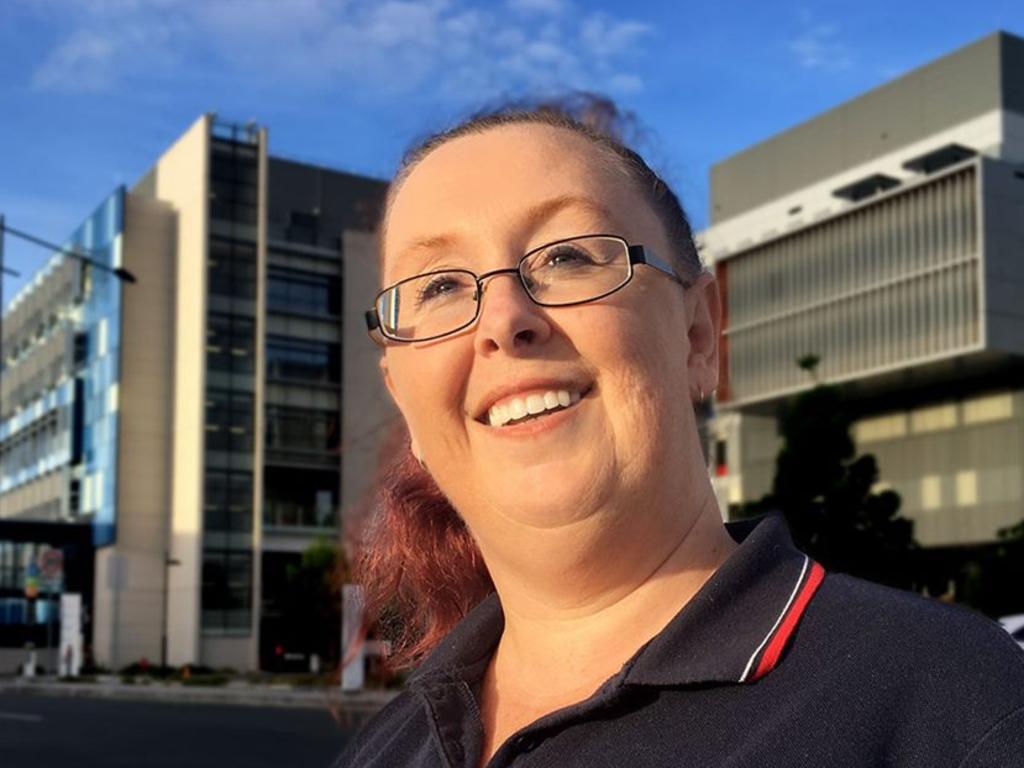
Before long, the Bradfords moved interstate and Mr Bradford became increasingly hostile towards his wife’s family, resulting in a gradual decrease in contact. But after some financial troubles, the couple returned to Queensland to reconnect with family.
“Teresa confided in me that David had cheated on her while she was pregnant. She was going to leave many times, but he had a stroke and she felt obligated to stay.”
When Mr Bradford became increasingly nasty to family members, Ms Bradford finally left the marriage, triggering a spike in his abusive behaviour, which quickly escalated to threats of violence, harassment and eventually, physical encounters.
He was arrested but released, and government bodies refused to get involved, says Ms O’Brien.
“She was trying to get a new place to be safe and to rebuild her life but because of the lack of support and funding she was all alone.
“He broke into her place, killing her with one fatal blow to the head.”
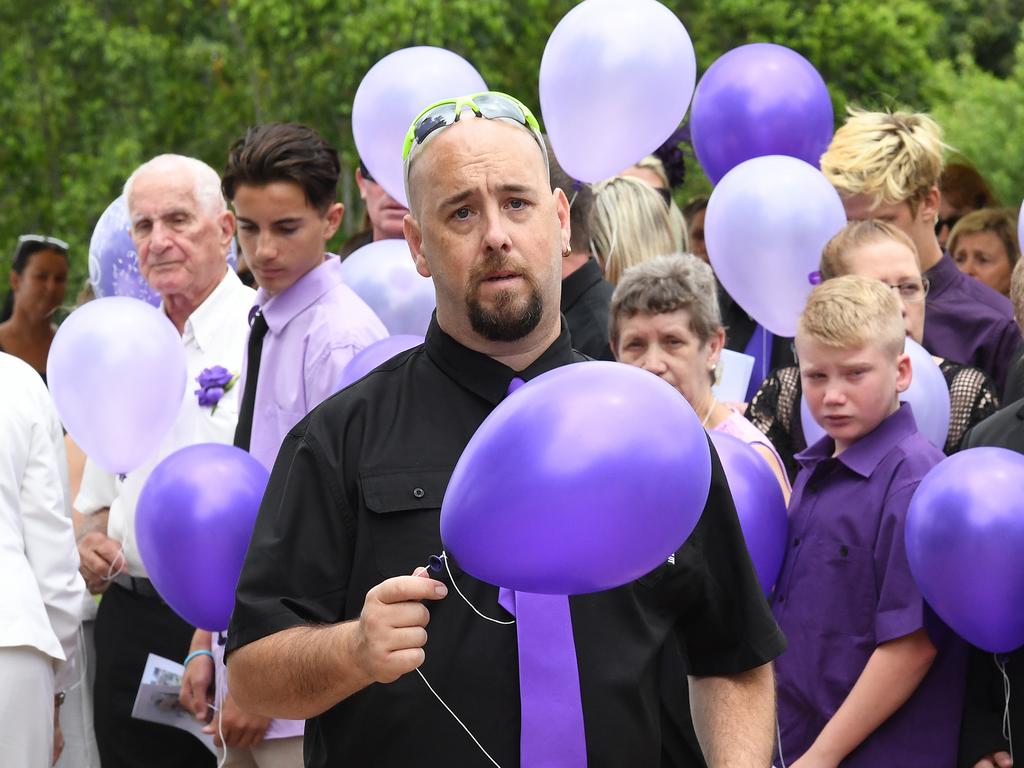
Red flags can appear at any stage in a relationship, creeping in slowly or present right from the beginning.
“When we are falling in love, investing emotionally in a ‘too good to be true’ relationship, the signs often present at the beginning,” says Ms Thomas.
“We can dismiss and hide some of these signs.
“We excuse them, cover up for our new partner, feel embarrassed or ashamed, don’t want another failed relationship, or think we can change them or help them.”
For Rekiah O’Donnell, shot and killed by her partner Nelson Lai who was convicted of her manslaughter, the red flags were immediate, but as is often the case, dismissed.
“On their very first date, Nelson accused Rekiah of eyeing off his friend, so (he was already) paranoid she was looking at other guys,” says Ms O’Donnell’s mother Kerryn Robertson.
His abuse escalated quickly, becoming physical within months.
“I could not believe that my independent and strong-willed child could be in a relationship like this.”
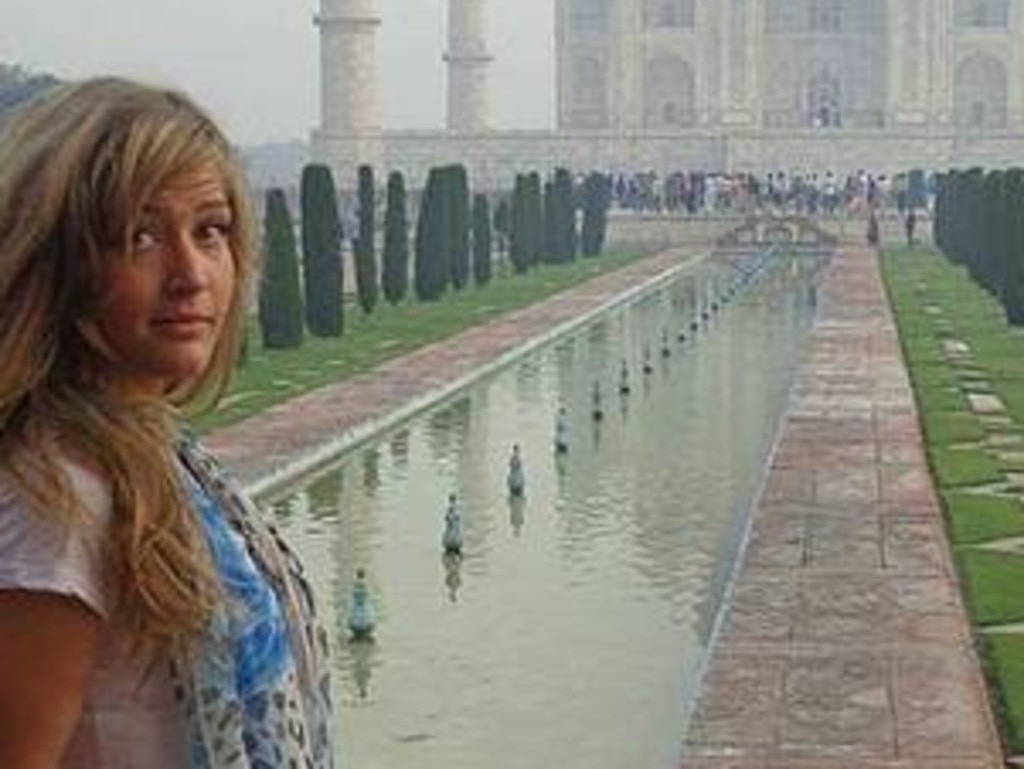
Ms O’Donnell was shot dead, aged just 22, after returning to Mr Lai’s home following a night out.
“People mistake the doting nature of the guy for love,” says Ms Robertson.
“Thinking that they are just jealous because they really love them, and even if they lose their temper, or abuse them, they can apologise and say it won’t happen again, and the women give them another chance.
“I think that right at that point where that jealousy and/or paranoid behaviour becomes apparent, is when they should leave.”
Ms Thomas says it’s now time for police, government and society as a whole to become educated about the early signs of domestic violence, in order to take action before tragedy unfolds.
If you notice any red flags in the relationships of your family or friends, don’t remain silent.
“Without judgment or harshness, approach them with genuine care and ask if they are being respected and feel safe and secure in their new relationship,” says Ms Thomas.
“Share with them The Red Flags DV Facebook page and suggest they be aware of the sneaky signs, as abusers are manipulative and work very hard to conceal their true intentions.”
The families of the women killed at the hands of their partner all concede the early signs were present, and agree more education is required to help women and their families recognise these behaviours as domestic abuse.
“One hundred per cent, people underestimate early signs of domestic violence, but that’s largely due to the fact that we as human beings try to see the best in people, and because no one wants to believe that the person they love will harm them,” says Ms Unwin.
“If you experience any signs that make you uncomfortable, any behaviour that makes you change how you act or behave is not acceptable. It is not love.”
“If he loves you, he will not isolate you from your friends, he will not have to check up on your every move, or ring you and your family hundreds of times a day,” says Ms Robertson.
“He will not accuse you of being with other men, he will not call you disgusting names or threaten you, and he will not wreck your property. All this is bad enough before it escalates into physical abuse.
“Get help and leave at these very first indicators. Don’t let it get to the point where you are physically hurt or even worse, killed.”
If you or someone you know needs help, please contact the National Sexual Assault, Domestic and Family Violence Counselling Service on 1800 RESPECT for 24/7 support.
Nicole Madigan is a freelance journalist. Continue the conversation @NicoleLMadigan



